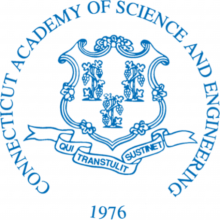Rocky Hill, CT — The Connecticut Academy of Science and Engineering (CASE) conducted an Early Childhood Regression Discontinuity Study, on behalf of the Education Committee of the Connecticut General Assembly. The study findings show evidence that attending state-funded prekindergarten in Connecticut, as delivered through the School Readiness program funding stream, positively impacts students’ early literacy and early numeracy skills. CASE will brief the Education Committee Tuesday, Sept. 13, at the Legislative Office Building in Hartford at 11:00 a.m.
This study represented the first statewide study of prekindergarten in Connecticut. The purpose was to investigate the immediate effects associated with children who attend Connecticut’s state-funded School Readiness full-day or school-day prekindergarten program. The study used a regression discontinuity research design (RD). This method can be used when there is a clear external means of distinguishing between groups in such a way that the only difference between these two groups is that some get a treatment and some do not. For this study, the treatment group included children who attended a state-funded School Readiness full-day or school-day prekindergarten program in 2014-15 and attended kindergarten in 2015-16. The control group included children who attended a state-funded School Readiness full-day or school-day prekindergarten program for the first time in 2015-16.
The study concluded that School Readiness full-day or school-day prekindergarten programs make a positive difference in the areas identified as statistically significant— in early literacy and early numeracy. However, using RD means that conclusions could not be made regarding: what about the School Readiness program makes a positive impact; what is the best of all possible School Readiness programs; or which aspects of the School Readiness program generated the most valuable outcomes.
A random sample of 529 students from the treatment and control groups were assessed using two standardized, psychometrically sound instruments: Woodcock Johnson, Fourth Edition (WJ-IV) and Peabody Picture Vocabulary Tests, Fourth Edition (PPVT-IV).
The findings from this study suggest the need for further studies regarding some of the mechanisms that helped to produce these results, as well as the non-findings. The study report outlines future evaluation questions, strategies for the state to consider in conducting future studies and possible funding sources to support future studies.
The Full Report, Executive Summary, and Briefing PowerPoint are available on the CASE website (www.ctcase.org). Scroll down to Reports and Studies.
###

